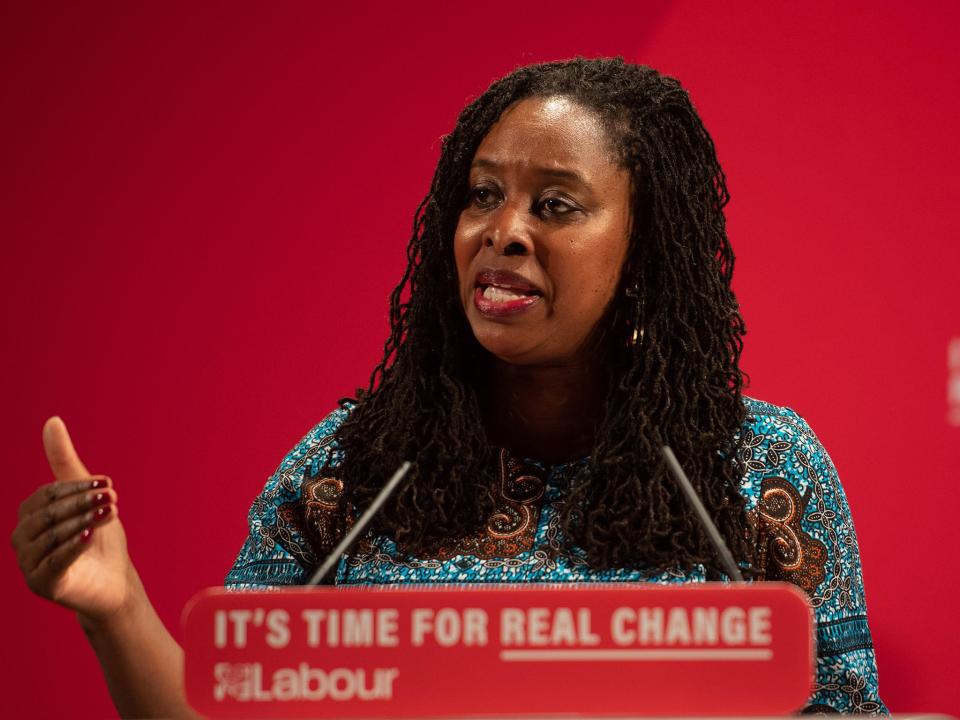Like the Labour leadership race, this crisis shows how readily we're willing to discard black women

As the results of the Labour Leadership elections rolled in over the weekend, there were some that were less unexpected than others. As an active Labour member, I was not surprised by establishment favourites, Keir Starmer and Angela Rayner, taking their places as leader and deputy. But one result did cause my group chat to erupt in a chorus of "huh?’" – Dawn Butler, the most experienced candidate in the race for deputy leader, had come last.
The only competing MP to have served in government, Butler has worked faithfully at the forefront of the party despite shifts in leadership and direction. Yet the experience and loyalty of this talented black female MP seemed to mean little to the majority of the Labour membership, if anything.
It’s a cutting outcome considering her credentials and even more so as Starmer installs his cabinet. Diane Abbott has stepped down from her role as shadow home secretary and Marsha De Cordova has replaced Butler as shadow secretary of state for women and equalities, halving the population of black women at the front of government to one.
At a time when the coronavirus pandemic is unveiling our fundamental problems, it gives me cause for concern as a black woman. Precarious employment and poor housing conditions have allowed the virus we were told did not discriminate to do exactly that, thriving on society’s inequalities.
The government attempt to mitigate some of these long-term issues with a slate of temporary legislation is welcome. But our essential workers – often working-class, BAME, in the care sector and women – are under pressure to continue working on the frontlines without the correct personal protective equipment, vulnerable to taking the virus home to their families. A recent ICNARC report on Covid-19 in critical care illustrates that black and minority ethnic patients disproportionately make up a third of those hospitalised for the disease, despite only being 13 per cent of the population. And not only that, the underfunded NHS is under pressure, exacerbating the poor standards of care and medical racism that black women often face.
In 2019, MBRRACE-UK would publish the Mothers and Babies report stating that Black women are five times more likely to die during childbirth than white women in the UK due to issues they face accessing healthcare. Other studies have also shown that providers of health care tend to underestimate the symptoms of black patients because they believe we "don’t feel as much pain". It was only two days after the announcement of the lockdown that Kayla Williams would suffer a similar fate. The young black mother from south London died from Covid-19 shortly after being deemed "not a priority" by a paramedic.
The very nature of this global pandemic means that there are new ways to dismiss our pain and symptoms, intensifying the systemic suffering black women have historically faced. As of now, there don't seem to be enough representatives in government to voice these valid fears – even if Butler had remained in the shadow cabinet, it could not be the work of one woman alone. Alongside Abbott, who weathered half of the abuse thrown online at MPs during the 2017 election, Butler, Bell Ribeiro-Addy and Marsha De Cordova have all been confused for each other by the press or for cleaners while in parliament. With institutional racism blockading black women from the front benches of parliament, there is little hope of our worries easing and this will make black women wary of entering politics.
The government's choice to accelerate police powers in order to curb the number of people flouting social distancing rules is having a similar effect on the black community. The over-policed black community faces more unnecessary scrutiny in general, we are nine times as likely to be stopped and searched by the police than white people and black people are more likely to have force used against us. So it was no surprise that the first person convicted under the government’s drastic coronavirus bill was a black woman, Marie Dinou. And her crime? "Loitering". The first case of its kind, the 41-year-old faced prosecution after being arrested at a train station. Keen to display a show of strength but lacking clarity on the contents of the bill, the police used the wrong law to prosecute her and the attempt was quashed.
These stories frighten me and many other black women. If I fall ill, what then? What happens if I'm found with a shopping bag of non-essential items by members of the police who are eager to exercise their new-found powers?
It is not enough to simply wish for this all to end, because to return to normal would be a return to crisis. A world where black women’s talents and pain are ignored, or, at worst, our presence is criminalised, is a world to fear. As the crisis develops, the world has learned that we are only as healthy as our neighbours. Among other actions of solidarity, the British public is sowing seeds of community through the establishment of Mutual Aid groups and selfless NHS volunteers.
There is an opportunity to strengthen these bright, powerful ideas into policy that heals the inequality that brought our society to its knees long before Covid-19 arrived. If we're going to avoid a repeat of the pain of our past, the future we build must include black women.
Read more
Live: Boris Johnson remains in intensive care in ‘stable condition’
Ed Miliband returns to frontline politics in Starmer shadow cabinet
Starmer appoints leadership rival Lisa Nandy shadow foreign secretary
BBC captions Dawn Butler’s name underneath image of different black MP

